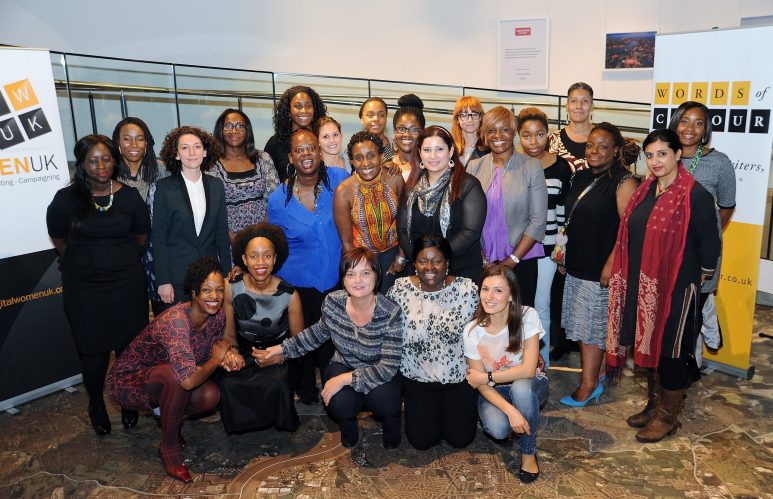Published: 30 September
Country: UK
Across the UK, female writers and 

Launched last week at the City Hall of London, Digital Women UK (DWUK) works with female creative practitioners, particularly from black and minority ethnic backgrounds, to help them showcase their work.Joy Francis, MDI board director and co-founder of Digital Women UK, said the initiative aims to be a “central point of connection to share ideas, learn new skills and reach wider audiences.”
The initiative has three cornerstones: training, to facilitate the creation of new online pieces of work; connecting, through events and a website with online debates, podcasts and interviews; and campaigning, to identify practical solutions to concerns facing culturally diverse women about digital divide, discrimination and visibility.
The co-founder of Digital Women, Julie Tomlin, who is also an MDI trainer and journalist, hits the nail on the head in saying that the launch of Digital Women UK could not be more timely. This summer we saw the viral hashtag #SolidarityisforWhiteWomen raising serious questions about the inclusiveness of feminism, and the bank note campaigner Caroline Criado-Perez threatened with rape by hundreds on twitter.

Seeking to develop a broader understanding of how women use social media, and who they are, DWUK has carried out a survey incorporating women from across the UK. The results show that “despite a degree of tentativeness among many of the women about their social media capabilities or choices, most jumped on board and continue to use social media without any formal training.” Among the other questions, survey respondents were asked if they had been online abused and how they had responded to trolling. Their answers indicate a proactiveness in the absence of clear industry-led guidelines.
Despite being brand-new, the initiative has already been endorsed by numerous leading female creatives, such as the artistic director at Tricycle Theatre, Indhu Rubasingham, the assembly member for North East London, Jennette Arnold OBE, and children’s laureate and award-winning author Malorie Blackman OBE.
Another supporter of the initiative, the award-winning blogger Minna Salami (MsAfropolitan), praised DWUK for “leveraging the opportunity that digital networks give everyone” and “bringing to the forefront voices of creative women of colour on topics that they both influence and are influenced by.”
Digital media has the potential to amplify underrepresented voices; however, all too often online discourse is dominated by the white, middle class majority. The work of DWUK is one small, but important, step towards reversing this trend.
